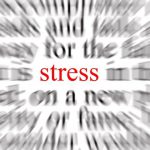 Dutch researchers conclude that moderate beer consumption shortly after a mental stress test attenuates the physical stress response. This was published in the scientific journal Alcohol.
Dutch researchers conclude that moderate beer consumption shortly after a mental stress test attenuates the physical stress response. This was published in the scientific journal Alcohol.
The experiment
The Dutch researchers tested the effect of beer after a mental stress test in 24 healthy men. They asked the men to drink either two cans of beer (in total ±26 gram alcohol) or two cans of alcohol-free beer (<0.5 gram alcohol) shortly after they finished the test. Subsequently, the physical stress response has been followed for three hours by taking blood samples and measuring the heart rate frequently. The blood samples were used to analyse the hormonal and immunological stress response of the men.
The conclusion
The researchers conclude that a moderate dose of beer after a mental stress test may facilitate recovery of the physical stress response. This is reflected by the significantly lower stress hormones ACTH and cortisol in the blood of the men that consumed beer after the test. Furthermore, moderate beer consumption caused a modest attenuation in the stress-induced immune response since it caused a significant lower concentration of cytokine IL-8 and lowered the percentage of monocytes (= type of white blood cells) 1,5 hour after the test. Although expected, the researchers did not find an effect on other physical stress parameters (heart rate and DHEA) and other parameters of the immune system (IL-1β, IL-6, TNF-alfa and lymphocytes).
The relevance
Stress-related disorders, such as cardiovascular disease, are increasingly common. Both the hormonal and immunological stress response have an important role in the pathology of cardiovascular disease2-3. Exploring the influence of moderate beer consumption on mental stress and stress disorders will help to better understand and prevent these diseases.
References:
- C. Schrieks, M.M. Joosten, W.A.A. Klopping-Ketelaars, R.F. Witkamp, H.F.J. Hendriks, Moderate alcohol consumption after a mental stressor attenuates the endocrine stress response, Alcohol (57) (2016), pp 29 – 34
- IE. Wynne-Edwards, M.C. Olmstead, The stress–response-dampening effects of placebo, Hormones and Behavior, 59 (4) (2011), pp. 465–472
- Dai, J. Thavundayil, C. GianoulakisResponse of the hypothalamic-pituitary-adrenal axis to stress in the absence and presence of ethanol in subjects at high and low risk of alcoholism, Neuropsychopharmacology, 27 (3) (2002), pp. 442–452
- J. Sher, B.D. Bartholow, K. Peuser, D.J. Erickson, M.D. Wood, Stress-response-dampening effects of alcohol: Attention as a mediator and moderator, Journal of Abnormal Psychology, 116 (2) (2007), pp. 362–377
- W. Levenson, K.J. Sher, L.M. Grossman, J. Newman, D.B. Newlin, Alcohol and stress response dampening: Pharmacological effects, expectancy, and tension reduction, Journal of Abnormal Psychology, 89 (4) (1980), pp. 528–538
- E. Gerszten, E.A. Garcia-Zepeda, Y. Lim, M. Yoshida, H.A. Ding, M.A. Gimbrone, A. Rosenzweig, et al.. MCP-1 and IL-8 trigger firm adhesion of monocytes to vascular endothelium under flow conditions, Nature, 398 (6729) (1999), pp. 718–723
- Simonini, M. Moscucci, D.W. Muller, E.R. Bates, F.D. Pagani, M.D. Burdicht, et al., IL-8 is an angiogenic factor in human coronary atherectomy tissue, Circulation, 101 (13) (2000), pp 1519 – 1526
